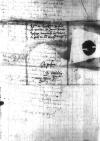Non dubito, quin, qui istic orig. isthic⌈isticistic orig. isthic⌉ estis viri boni atque amatores reipublicae Christianae, omnes magno studio teneamini intelligendi ea, quae vel ⌊Ratisbonae⌋ pro stabilienda domi pace, vel ⌊Budae⌋ pro depellendo omnium hoste immanissimo ⌊Thurca⌋ aguntur aut acta sunt, et sane non minore nos desiderio orig. desyderio⌈desideriodesiderio orig. desyderio⌉ tenemur cupidissime exspectantes, si quid exspectationi nostrae consonum et conveniens nuntietur orig. nuncietur⌈nuntieturnuntietur orig. nuncietur⌉. Neque tamen hactenus quicquam rescire licuit certi, nisi quod omnium vocibus celebrari audimus ⌊caesaris⌋ nostri summam diligentiam in ambiendis singulis, ut tandem a privatis amicitiis inimicitiisve sese vertant ad rempublicam, qua sine frustra sunt omnia. Et fama quidem fert in hoc tam pio opere promovendo eos sese praestare orig. prestare⌈praestarepraestare orig. prestare⌉ tepidos, quos maxime oporteret secus facere. Id si ita est, taedere nos potest temporum istorum, in quibus tam corrupta videmus esse iudicia hominum, aut accersendus est angulus aliquis, ubi procul a strepitu talium nuntiorum orig. nunciorum⌈nuntiorumnuntiorum orig. nunciorum⌉ liceat exspectare
cf. Vulg. Apc 4.1.1-3 post haec vidi et ecce ostium apertum in caelo et vox prima quam audivi tamquam tubae loquentis mecum dicens ascende huc et ostendam tibi quae oportet fieri post haec ⌊vocem tubaecf. Vulg. Apc 4.1.1-3 post haec vidi et ecce ostium apertum in caelo et vox prima quam audivi tamquam tubae loquentis mecum dicens ascende huc et ostendam tibi quae oportet fieri post haec ⌋. Sed quid facias? Deplorare quidem hunc statum rerum possumus, in melius reformare non possumus.
Iamque ⌊caesar⌋ non diu ⌊Ratisbonae⌋ haesurus et ⌊Thurcae⌋ propediem ad ⌊Budam⌋ futuri nuntiantur orig. nunciantur⌈nuntianturnuntiantur orig. nunciantur⌉, utrumque nostro magno cum incommodo, nam et praesentis ⌊caesaris⌋ auctoritas orig. authoritas⌈auctoritasauctoritas orig. authoritas⌉ ad plerorumque animos confirmandos multum habet momenti, et ⌊Thurcarum⌋ adventus exercitui nostro nondum praesidiis Germanici imperii adaucto metuendus, forte etiam et periculosus erit. Pestis enim valida saevire dicitur in castris, quam militaris petulantia accedente aestu ferventioris sideris orig. syderis⌈siderissideris orig. syderis⌉ non videtur esse imminutura. Deus pro sua clementia orig. claementia⌈clementiaclementia orig. claementia⌉ det principibus Christianis in animum consilia, quae utilissima sunt, atque eadem adimat e mentibus adversariorum ch crucis.
 AAWO, AB., D. 70, f. 97v
AAWO, AB., D. 70, f. 97v
Quae hic geruntur, breviter accipe. Superiori hidden by binding⌈[i]i hidden by binding⌉ mense celebratae sunt hic nuptiae inter ⌊Franciscum⌋ ducem ⌊Bari⌋ filium seniorem ⌊ducis Lothoringiae⌋ et paper damaged⌈[t]t paper damaged⌉ dominam ⌊Christinam⌋ filiam ⌊Christierni regis⌋, viduam ⌊Francisci Sphortiae⌋ ducis ⌊Mediolani⌋. Neque multo post, postquam invisisset ⌊Bredam⌋ urbem ⌊principis Auriacensis⌋, abierunt coniuges in ⌊Lothoringiam⌋. Post eorum abitionem, ⌊princeps ille Auriacensis⌋ concessit in ⌊Hollandiam⌋, cuius est institutus gubernator, et dominus ⌊Maximilianus comes de Buren hidden by binding⌈[en]en hidden by binding⌉⌋ in ⌊Frysiam⌋.
Circa eadem tempora, ⌊Guilielmus dux Iuliaci et Cliviae⌋ versatus est in aula ⌊Francorum⌋. Cui desponsa est ⌊filia⌋ ⌊sororis⌋ ⌊regis Christianissimi⌋ et ⌊Henrici de Labrecht⌋, qui se vocat regem ⌊Navarrae⌋. De quo matrimonio variant plerique. Alii in aliam partem interpretantur, sed non desunt, qui negent matrimonium consummatum iri, quod virgo nondum viripotens et rex consilium ex tempore capturus videtur. Quicquid id est, videntur hidden by binding⌈[ur]ur hidden by binding⌉ haec adversus ⌊caesarem⌋ cudi, quemadmodum et revera orig. re vaera⌈reverarevera orig. re vaera⌉ fiunt, sed non deerit maiestati ipsius caesareae hidden by binding⌈[ae]ae hidden by binding⌉ Deus, qui novit, qua intentione hactenus bonum publicum procuraverit. Sunt, qui statim ab eodem ⌊rege⌋ bellum nobis illatum iri credunt. Sunt, qui existimant ⌊illum⌋ dependere ab occasione, quod verosimilius orig. vaerosimilius⌈verosimiliusverosimilius orig. vaerosimilius⌉ est.
Dominus ⌊de Vely⌋, qui anno hidden by binding⌈[o]o hidden by binding⌉ tricesimo secundo orator fuit prae(fa)ti or prae(dic)ti⌈prae(fa)tiprae(fa)ti or prae(dic)ti⌉ ⌊regis Francorum⌋, adhuc apud ⌊caesarem⌋ agit. Est item apud ⌊ipsius maiestatem⌋ illustris dominus ⌊a Prato⌋, ex aulicis ⌊baro de Montfalconnet⌋ et novitii plerique, nostro tempore pueri. Superest adhuc apud ⌊principem Auriacensem⌋, ⌊Rosey⌋ et ⌊Hourron⌋ praefectus domus
ill(ustris) or ill(ustrissimi)⌈ill(ustris)ill(ustris) or ill(ustrissimi)⌉
quondam domini ⌊Henrici de Nassaw⌋, neque multo plures. In hanc exiguitatem re
 AAWO, AB., D. 70, f. 98r
dactus est ordo noster.
AAWO, AB., D. 70, f. 98r
dactus est ordo noster.
⌊Caesar⌋ parat ingentem expeditionem maritimam traiecturus in ⌊Aphricam⌋,[1] uti videtur, nam ⌊Hispaniae⌋ ingentem numerum navium parant et miles ex ⌊Germania⌋ ⌊Italia⌋que satis numerosus conscribitur. Initium profectionis aiunt fore circa Kalendas Augusti, quamquam sunt, qui citius futurum credunt, quod mihi non videtur factu possibile. Interea praestolabimur nuntium orig. nuncium⌈nuntiumnuntium orig. nuncium⌉ de ⌊Thurcis⌋ et de conclusione ⌊conventus imperialis⌋.
Ego, ut de me aliquid audias, haereo orig. hereo⌈haereohaereo orig. hereo⌉ in hac aula apud serenissimam ⌊reginam Mariam⌋, rarus domi, frequens peraegre orig. peregre⌈peraegreperaegre orig. peregre⌉, quod incipit displicere. De domino ⌊Iacobo a Barthem⌋ nihil iampridem audio, precor tamen illi felicia orig. foelicia⌈feliciafelicia orig. foelicia⌉ omnia pro candore ingenii ipsius. Sed paene orig. pene⌈paenepaene orig. pene⌉ oblitus eram, quod frequenter scriptum ad te volebam. Missa est per eundem orig. eumdem⌈eundemeundem orig. eumdem⌉ ⌊Iacobum a Barthem⌋ ad me ⌊⌋ quaedam orig. quedam⌈quaedamquaedam orig. quedam⌉ per ⌊iuvenem⌋, ut videtur, mathematicarum artium non ignarum, in ⌊⌋ doctoris ⌊Nicolai Copernici⌋ Torunnei, canonici Varmiensis.[2] Ea ⌊⌋ sive praegustatio effecit, ut celebre factum sit nomen prae(fa)ti or prae(dic)ti⌈prae(fa)tiprae(fa)ti or prae(dic)ti⌉ ⌊Copernici⌋, utque plerique viri boni interque eos ⌊Gemma⌋ tuus magnopere anhelent ad evulgationem ⌊⌋, si quae aliquando futura est, quo de, ut ad nos rescribas, etiam atque etiam precor.
Interea felicissime orig. foelicissime⌈felicissimefelicissime orig. foelicissime⌉ vale et me meaque habe tibi commendatissima.
 AAWO, AB., D. 70, f. 98r
dactus est ordo noster.
AAWO, AB., D. 70, f. 98r
dactus est ordo noster.



